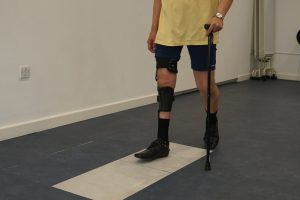
Introduction: Empowering Nutrition for Energy Preservation
For individuals managing post-polio fatigue or limited mobility, optimizing nutrition becomes pivotal for conserving energy and enhancing daily functionality. This article delves into dietary guidance designed to aid in energy conservation for improved quality of life.
Understanding Energy Conservation Through Nutrition
Explaining the relationship between nutrition and energy conservation, highlighting the importance of nutrient-rich foods in supporting energy levels and reducing fatigue.
Balanced Meals for Sustained Energy
Emphasizing the significance of balanced meals comprising complex carbohydrates, lean proteins, and healthy fats to provide sustained energy for individuals experiencing post-polio fatigue.

Snack Choices for Boosting Energy
Providing insights into energy-boosting snacks, such as nuts, seeds, fruits, and yogurt, offering quick and accessible sources of nutrients to prevent energy slumps.
Portion Control and Meal Timing
Discussing the impact of portion control and meal timing on energy levels, advocating for smaller, frequent meals to prevent energy dips and optimize digestion.
Micronutrients for Vitality
Exploring the role of specific micronutrients like iron, B-vitamins, and magnesium in supporting energy production and suggesting dietary sources to incorporate into daily meals.
Hydration for Energy Maintenance
Highlighting the importance of proper hydration in maintaining energy levels, offering hydration strategies and recommending fluid-rich foods for optimal energy conservation.
Adaptations for Limited Mobility or Fatigue
Providing dietary adaptations for individuals with limited mobility, offering meal preparation tips and easy-to-eat nutrient-dense options for conserving energy.
Mindful Eating and Energy Preservation
Exploring the concept of mindful eating and its role in conserving energy, suggesting strategies such as focused eating and adequate chewing to optimize digestion.
Supplements and Supportive Nutritional Aids
Examining the potential role of supplements or nutritional aids in supporting energy conservation, alongside professional guidance and recommendations.
Collaboration with Healthcare Professionals
Stressing the importance of collaborating with healthcare professionals or dietitians to develop personalized dietary plans tailored to individual needs and energy levels.

Conclusion: Nourishing Energy for Enhanced Quality of Life
Concluding with the significance of nutrition in conserving energy for post-polio individuals, empowering them to leverage dietary choices for improved daily functionality and enhanced quality of life.










